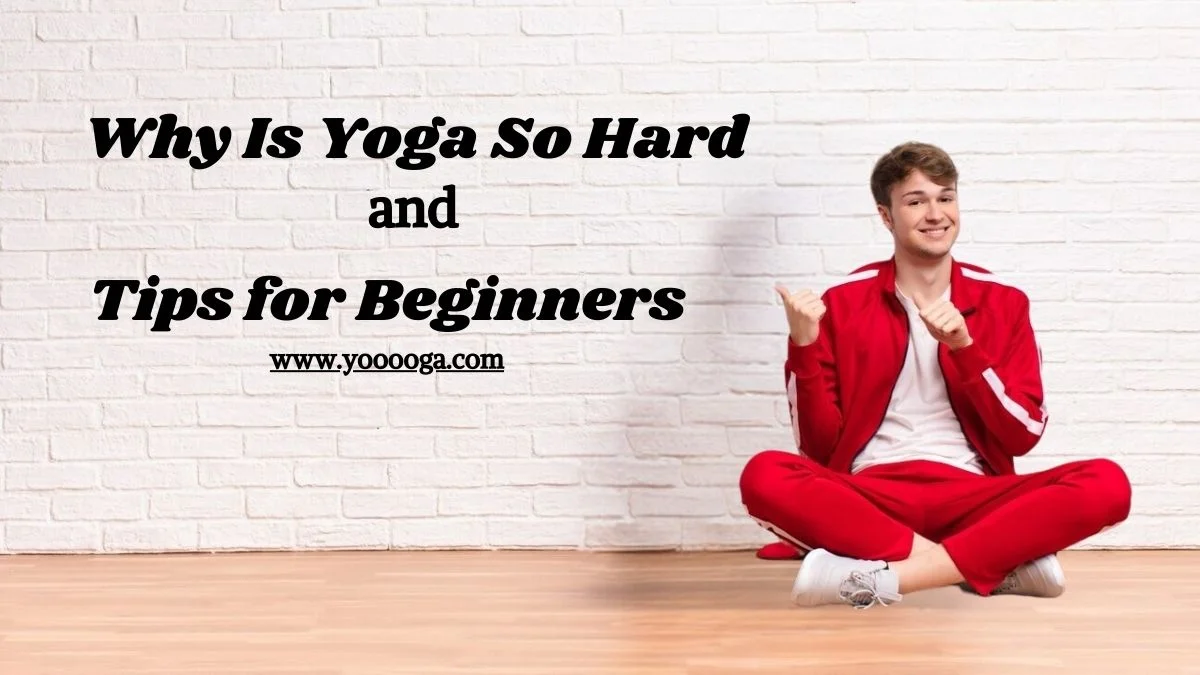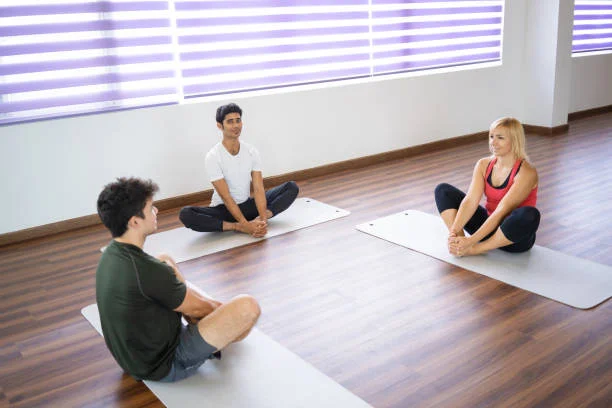YOGA
Why Is Yoga So Hard and Tips for Beginners

I still remember my first month of yoga sessions, it was miserable. Why is yoga so hard? I asked my teacher, she giggled and told me, “it just takes time to see any result.” Now I feel so lucky that I carried on and the moment I saw how yoga change my body is exactly the moment I fall in love with yoga.
Many yogi have the same experience as I do. Have you ever tried to attend a yoga class and found yourself thinking, “Why is yoga so difficult?” Do not worry, you are not alone. There are so many of you who are struggle with yoga. As a five year practitioner, I would say, it is important to realize that this is part of the challenging journey, and to be honest, if it were that easy, there would be much less rewarding.
Back to reality, yoga is hard because performing yoga postures are physically demanding, you get to have certain level of flexibility and strength to perform those asanas. This article will explore the reasons why practice yoga is so hard. Rest assured that you will find tips on how to stay motivated. Hence, if you are a regular practicer already, congratulations, you may skip this article.
Table of Contents
Yoga is difficult because it challenges your flexibility
Most yoga postures require us to pull our muscles, poor flexibility will limit your movement. When you’re stronger and more flexible, your posture improves.
Better flexibility means a better range of motion, it promotes joint health that help prevent back pain, repetitive-use damage, and sports injuries and allows you to achieve the maximum results that you’re putting into your fitness routine. Additionally, when you are flexible, you are versatile, resilient and responsive to change. You can adapt to advanced asanas through regular practicing.
However, when it comes to yoga practice, flexibility isn’t a prerequisite. As a matter of fact, a regular yoga practice will actually help you become more flexible over time.

Yoga postures are physically demanding
It takes a lot of strength to hold your body in a balanced pose. Many poses use the combination of body weight and moving your muscles differently than you’re accustomed to stretch or lengthen your body, a balance of strength and flexibility is required to perform these postures. For instance, most standing and sitting poses require core muscle to support and maintain each pose. With stronger muscles, you are likely to sit “tall” or lengthen your body in mountain standing pose.
For fresh man who just starting out, especially those with weak muscles due to long hours of sitting in front of screens, perform yoga postures is difficult and in-frustrating.
Deep breathing is hard to do
Controlling your breath during fast yoga flows is a mission impossible for beginners. For those who just start yoga often find they need to re-learn breathing and struggle with breaking their old breathing patterns.
Another breathing issue is that they tend to hold breath during intense yoga poses, this is a bad habit that they could not help doing out of instincts.
As a matter of fact, uneven breath lead to the opposite of smooth yoga practice, amateurs struggle with breathing problem would easily give up as they naturally think this problem in unbeatable and yoga is too difficult for them.
You can’t help but compare yourself to other people in class
Yoga class can be frustrating sometimes you see everyone else around you are doing perfectly. As a beginner, it is so hard to keep up with orders, not to mention performing poses correctly and thoroughly. Comparing with others cause people to experience stress and defeated. Other people in yoga class might be more flexible, stronger, skinnier, and feeling in-confident might stimulate the idea of quit.

You’re not seeing results as fast as you thought you would
Setting a goal of yoga practice is a natural thing, and many people have their own version of anticipation for doing yoga, like losing weight, improve flexibility, build strength and else. The fact is when you set expectation for something, it completely takes the joy out of it.
How Do I Get Better at Yoga?
There are three tips that I think could help beginners to overcome the difficulties on the first phase of yoga practice, they are simple but quite helpful.
1. Learn more about yoga.
Get to learn what yoga is and figure out why we practice it. Get to know the benefits of yoga practice and what you like the most on yoga. The better you know about yoga, the more determined you are. The same way as “get picky on yoga wear, the better you will perform”
2. Do not compare, focus on yourself.
As an advanced student, I remember what was feeling like of comparison in the beginning, but yoga is not about comparing, is about self improvement. Don’t set your goal too high. Goals can be motivating but it is equally important to make them attainable and forgive yourself if you don’t achieve them!
3. Be patient with yourself.
You do not have to nail every pose on the first try, it is totally to admit that yoga is hard. And hard lessons take time to digest and progress. You are not going to become a guru overnight, be easy on yourself, and other thing will flow in naturally.
-

 GENERAL2 months ago
GENERAL2 months agoUncovering the World of кинокрадко: The Dark Side of Film Piracy
-

 GENERAL1 month ago
GENERAL1 month agoUnveiling the Art of преводсч: How Translators Bridge Language Barriers
-

 YOGA1 year ago
YOGA1 year ago4 Person Yoga Poses for Beginners
-

 GENERAL2 months ago
GENERAL2 months agoThe Journey of iamnobody89757: From Anonymous User to Internet Sensation























